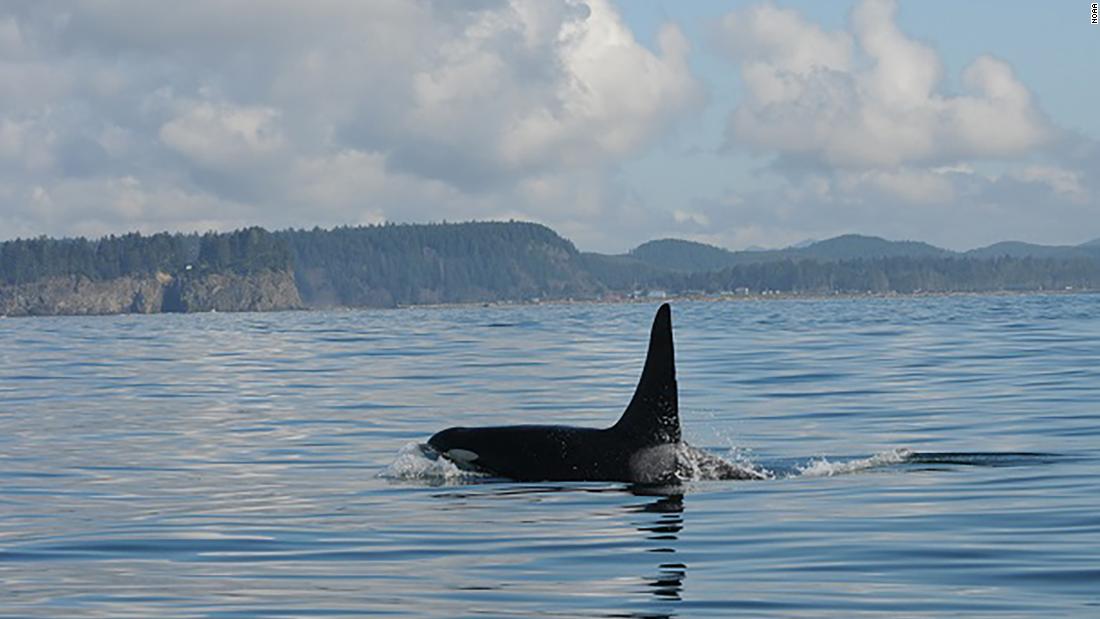
The whale, named L41, was not with his family when researchers encountered them off Washington's coast last week. The last time they had seen him, he was looking thin and not healthy, according to Shari Tarantino, president of the Orca Conservancy.
If L41 is not just missing, but in fact dead, that would bring the population of Southern Resident orcas to just 72 whales. It hasn't been that low since 1974 when 71 whales remained, according to the National Oceanic and Atmospheric Administration.
L41 was significant to the Southern Resident population because he and one other male, J1, fathered a majority of the whales born since 1990. J1 fathered 16 whales, and L41 fathered 20 whales, according to NOAA.
"He was just a really big personality, and a big whale, and of course he was an important member of his family," Deborah Giles, research scientist for University of Washington's Center for Conservation Biology told The Seattle Times. "I am going to miss seeing him."
On the brink of extinction
Worldwide, killer whales are generally thriving, but the Southern Residents, which swim between the inland waterways of Washington State and the transboundary waters between the US and Canada, are at risk of becoming extinct. While the whales suffer from noise and overcrowding from boat traffic, the biggest threat leading them to possible extinction is the lack of salmon.
"When they're relying on their fat reserves (instead of eating salmon), all the toxins that are in the waters that they've accumulated in their lives, they start to feed on that and that makes them sick," Tarantino told CNN.
Republican senators from Washington state are leading a plan to establish a public-private fish hatchery in the Bellingham area, according to CNN affiliate KIRO.
While a fish hatchery would allow for increased production of salmon, orca advocates believe fish hatcheries are just a temporary bandage that don't address the bigger issue.
"Fish hatcheries are a necessity, but not over long term," Tarantino said. "We need to fix the problem. We give salmon the stream so that they can leave and lay eggs. We just have to give them room to grow and be able to live."
So what's preventing the salmon from being able to live? The Snake River dams, Tarantino said.
Orca advocates are calling for the dams to be breached as dams alter the habitat, change historic river flow and raise water temperatures, according to Northwest Power and Conservation Council.
If four of the 15 Snake River dams were removed, the salmon population would increase by two- to three-fold, according to a 2017 study by the Fish Passage Center.
"(Killer whales) are at the top of the food chain," Tarantino said. "So when they're failing, everything beneath in the ecosystem is failing. That is a huge warning. It would be an absolute mess."
No comments:
Post a Comment